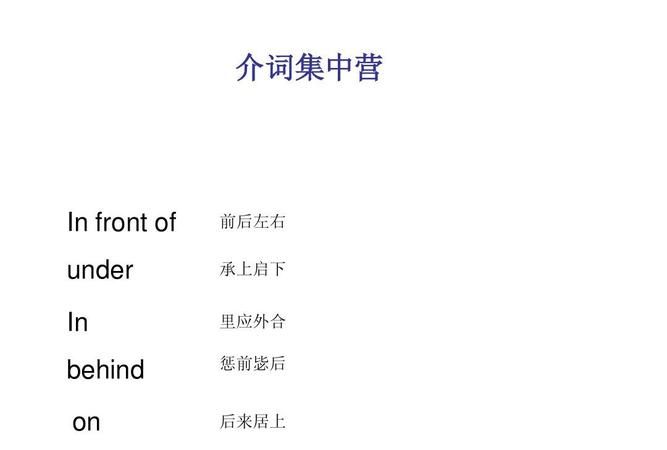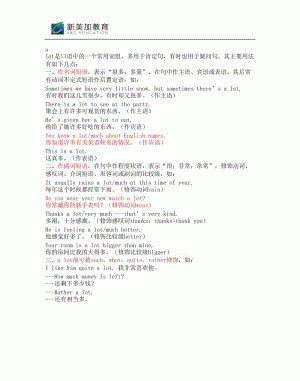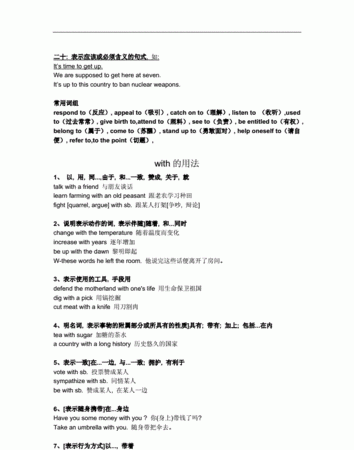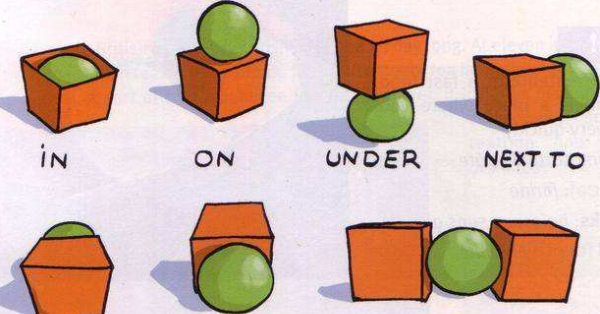本文目录
介词of的用法总结七年级
最好查个牛津高级或者朗文词典,很全面的
这是我查了剑桥英语高级词典的结果,初中的前几个就差不多了,后面的用法比较偏,况且of一般仅仅是表归属多些,其他的话,也没什么。
of 1
of (POSSESSION) weak /əv/,/ strong /ɒv/ US /ɑːv/
preposition
used to show possession, belonging or origin:
a friend of mine
the president of the United States
employees of the company
the colour of his hair
a habit of mine
that revolting dog of hers
the love of a good woman
the complete plays of (= written by) Federico Garcia Lorca of 2
of (AMOUNT) weak /əv/,/ strong /ɒv/ US /ɑːv/
preposition
used after words or phrases expressing amount, number or particular unit:
a kilo of apples
loads of food
hundreds of people
most of them
none of them
both of us
a third of all people
a speck of dust
a drop of rain of 3
of (CONTAINING) weak /əv/,/ strong /ɒv/ US /ɑːv/
preposition
containing:
a bag of sweets
a bottle of beer
a book of short stories
sacks of rubbish
a class of idiots of 4
of (POSITION) weak /əv/,/ strong /ɒv/ US /ɑːv/
preposition
used in expressions showing position:
the top of his head
the back of your dress
on the corner of the street
the front of the queue
I've never been north of Edinburgh. of 5
of (TYPICAL) weak /əv/,/ strong /ɒv/ US /ɑːv/
preposition
typical or characteristic of:
She has the face of an angel.
That man's got the brain of a donkey! of 6
of (DAYS) weak /əv/,/ strong /ɒv/ US /ɑːv/
preposition
used to refer to a particular date in a month:
the eleventh of March
the first of the month of 7
of (TIME) weak /əv/,/ strong /ɒv/ US /ɑːv/
preposition US
used in saying what the time is:
It's ten (minutes) of five (= ten minutes before five o'clock). of 8
of (DURING) weak /əv/,/ strong /ɒv/ US /ɑːv/
preposition OLD-FASHIONED
during:
I like to relax with a pipe of an evening. of 9
of (USED AFTER ADJECTIVES) weak /əv/,/ strong /ɒv/ US /ɑːv/
preposition
used to connect particular adjectives with nouns:
fond of swimming
sick of his excuses
frightened of spiders of 10
of (JUDGMENT) weak /əv/,/ strong /ɒv/ US /ɑːv/
preposition
used after an adjective when judging someone's behaviour:
It was a bit unkind of you to mention her weight.
Thank you so much for my present. How thoughtful of you. of 11
of (RELATING TO) weak /əv/,/ strong /ɒv/ US /ɑːv/
preposition
about; relating to:
Speaking of Elizabeth, here she is.
One of the advantages of travelling by train is being able to read.
Let us consider the events of the last five months.
Of her childhood we know very little.
And what of (= Tell me about) young Adrian? How is he? of 12
of (MADE OF) weak /əv/,/ strong /ɒv/ US /ɑːv/
preposition
made or consisting of; having:
dresses of lace and silk
plates of gold and silver
a land of ice and snow
a woman of great charm
a subject of very little interest of 13
of (SEPARATE FROM) weak /əv/,/ strong /ɒv/ US /ɑːv/
preposition
used in expressions showing distance from something in place or time:
We live within a mile of the city centre.
She came within two seconds of beating the world record. of 14
of (LOSS) weak /əv/,/ strong /ɒv/ US /ɑːv/
preposition
used in expressions showing loss:
They were robbed of all their savings.
I feel I've been deprived of your company. of 15
of (THAT IS/ARE) weak /əv/,/ strong /ɒv/ US /ɑːv/
preposition
that is/are:
the problem of homelessness
a rise of 2% in inflation
the skill of negotiating
the difficulty of bringing up twins
the pain of separation
At the age of six she could read a newspaper. of 16
of (COMPARING) weak /əv/,/ strong /ɒv/ US /ɑːv/
preposition
used when comparing related things:
Best of all I liked the green one.
Worst of all was the food!
He's the best looking of the three brothers.
I think that of all his films it's my favourite. of 17
of (DONE TO) weak /əv/,/ strong /ɒv/ US /ɑːv/
preposition
done to:
the massacre of hundreds of innocent people
the oppression of a nation
the destruction of the rain forest of 18
of (FELT BY) weak /əv/,/ strong /ɒv/ US /ɑːv/
preposition
felt or experienced by:
the suffering of millions
the anguish of the murdered child's parents of 19
of (THROUGH) weak /əv/,/ strong /ɒv/ US /ɑːv/
preposition
through; having as the cause:
He died of cancer.
I didn't have to go there - I did it of my own free will.
I want to know how

介词of的用法
介词 of 用法注意
1. 表示所有关系,用以构成名词的所有格,如the gate of the school(校门),the secret of success(成功的秘密),等。
注意以下正误表达:
正:He is a friend of my father. 他是我父亲的一位朋友。
正:He is a friend of my father’s. 他是我父亲的一位朋友。
正:He is a friend of mine. 他是我的一位朋友。
误:He is a friend of me.
以下表达是错误的:
误:What’s the name of you?(改为…your name)
误:Do you know the father of him?(改为…his father)
误:I will show the books of me.(改为…my books)
但是以下表达却是对的(of表示动宾关系):
正:I hate the sight of him. 我讨厌看到他。
正:His criticism of her is serious. 他对她的批评是严肃 的。
2. 与 age, shape, size, colour, height, design, weight 等名词连用,可用作表语或定语;其中的介词 of 有时可省略。如:
The two boys are (of) the same height. 这两个男孩一样高。
Here is a piece of wood (of) the right size. 这有一块木头,其大小刚好适合。
When I was (of) your age, I lived in the country. 我像你这个年纪的时候,我住在乡下。
3. 与某些名词(如help, value, interest, importance等)连用,相当于形容词,可用作定语或表语。如:
It’s not of much value. 这没有多大价值。
This subject is of great interest to me. 这门学科对我来说是很有趣的。
The dictionary is of much help to the students. 这本字典对学生帮助很大。
4. 与 hear, talk, know, speak 等动词连用,表示一种间接性,大意为“涉及到”。如:
I’ve never heard of anyone doing a thing like that. 我从未听说有人做过那种事。
Mary is talking of looking for another job. 玛丽说起要另找一份工作。
I don’t know the writer, but I know of him. 我不认识这个作家,但我听说过他。
People spoke of their fear as the flood waters rose. 人们说起看到洪水上涨时的恐惧。

of的用法总结
帮你找的两个答案。
1:表示剥夺,除去
一:deprive sb. of his right
denude sb. of his possession (hope)
divest the baby of his clothes
rid him of this fear rob sb. of his wallet
defraud sb. of gold ring
cure sb. of cancer heal sb. of cancer
purify the nation clean the jar of crust
clarify the river of flowing rubbish
--get rid of, rid of, dispose of
2:of接直接宾语
-告诉-tell sb. of sth. inform sb. of sth warn sb. of fire
remind sb. of his duties acquaint sb. of sth. notify of..
-其他,劝服-persuade sb. of honesty assure sb. of the best seats convince sb. of sth.
-法律词汇-accuse sb. of burglary convict sb. of murder; suspect sb. of a theft
-reassure his wife of his safe arrival
3:of接间接宾语
request sth. of sb. expect sth. of sb. require sth. of sb.
ask a question of sb. be fearful of mistakes be jealous of wealthy persons be reminiscent of his
past be patient of the enormous noise be guilty of robbery be innocent of robbery
4:of表示人物的特性,籍贯,特性或出生等
He is of Irish descend (ascent)
People of obscure origin (humble /noble)
Man of keen perception a man of moral integrity
5:固定词组
-say of, tale of, hear of, think of, learn of, savor of
The room smells of stale cabbage.
-brag of his achievements. Boast of his children
beware of pickpockets approve of the program
doubt of success complain of poor management
-be sure of be suspicious of be aware of
be confident of be proud of be ashamed of
be afraid of be capable of be lack of
be critical of be shortly of be conscious of
be ignorant of be wary of be cautious og
be appreciative of your advice
-regardless of , irrespective of ,不管….无视
in favor of
decide on three most popular leisure
activities irrespective of age
一、前面的名词是主语的情况
1、[表示所属关系](属于)...的 eg:man of that time那个时代的人
2、[表示关于](关于)...的 eg:a long story of adventure一个很长的冒险故事
二、短语是主语的情况
1、[表示同位关系] eg:the city of Rome罗马市
2、[表示性质、内容 、状况等] eg:a look of pity令人哀怜的神色
3、[表示在...方面] eg:be quick of eye眼快
三、后面的名词是主语的情况
1、[表示数量、种类] eg:three pieces of meat三块肉
2、[表示部分或全部] eg:five of us我们中五个人
3、[表示...中最突出的] eg:the hero of heroes最杰出的英雄
4、[表示由...组成、做成] eg:a table of wood木头桌子
5、[表示动作的主体] eg:It is clever of you to do so.你那样做真聪明。

to in for of 四个介词的用法
at、 in、 on、 fo、 of具体用法如下:
1.at的用法:
用于时间时,可表示时刻,如at night,at three o'clock等。也可表示较短的时期,如atnight,其中at night表示时刻时意为“在薄暮”,表示较短的时期时意为"在夜里",通常指黄昏或上半夜。
at用于信封地址前可指“转交”。Mike at 99 Zhongshan Road Shanghai. Mike经常不在上海中山路99号,请予以转交。
at用于一些动词后面表示某种情绪、非语言交流或攻击性行为,如smile at me,point at me,shout at you等。
2.in的用法:
(表示位置)在…里面〔内,中〕; 在,于; 在…部位上 at a point within the area or volume of (sth)
(表示时间)在…时期,在…之后,在过程中 during (a period of time)。
(表示方向)往…内,朝…方向 toward
3.on的用法:
日期前的on常被省略。
on表示“在物体的表面上”,用on的表达方式有on the next morning,on the following。
4.for的用法:
for是并列连词,引导的是并列从句,表示原因的语气很弱,一般是对结果作出推断性的补充说明或解释,不表示直接原因, for前多加逗号。
for用法较正式,很少用于口语,一般用于书面语。
5.of的用法:
(表示时间)在…的,在…之前; 在…期间 in front of; during
(表示方式)根据 according to
(表示对象)对于,就…而言 as far as

扩展资料
介词(preposition 简写prep.)又称作前置词,表示名词、代词等与句中其他词的关系,在句中不能单独作句子成分。介词后面一般有名词、代词或相当于名词的其他词类、短语或从句作它的宾语,表示与其他成分的关系。
介词和它的宾语构成介词词组,在句中作状语,表语,补语,定语或介词宾语。同时介词的用法也很灵活,同一个介词可以表达多种意义,介词可以分为时间介词、地点介词、方式介词、原因介词、数量介词和其他介词。
介词一般用于名词或者代词前面,表示该词与句中其他成分的关系。介词后面的名词或代词称为介词宾语(如果是人称代词,则要用宾格)。介词和介词宾语合在一起构成介词短语。
主要用途:
1.表示在某时间。
2.表示 期间 常用介词during,for,over,within,throughout,from和to等。
3.表示数量的常用介词有about(around),over等。
4.表示其他时间概念的介词有before,after,since,until,till,between,up to等
5.表示进行。He is at work. (他正在工作。)
6.表示“方法 ,手段”的介词常用by,with,through等。
以上就是关于介词of的用法总结七年级 ,介词of的用法总结七年级的全部内容,以及介词of的用法总结七年级 的相关内容,希望能够帮到您。

